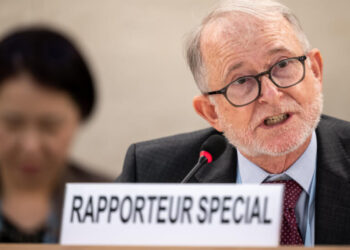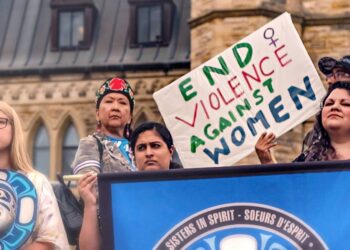Human Lives Human Rights: In the previous part, we discussed the history of women’s rights in Afghanistan from the beginning to the end of the 20th century, and in this article, we will examine women’s rights during the first government of the Taliban until the occupation in Afghanistan.
The Taliban is a religious militant group that has its roots in the beliefs of Deobandi Islamists, based on the beliefs of Sunni Islam. It was formed in the form of countering the invasion of the Soviet Red Army in Afghanistan, and it is mainly composed of Pashtuns, Uzbeks, and Tajiks. But after the withdrawal of the Soviet army from Afghanistan, it sought to take over the government, which faced massive resistance from other groups and finally led to a long civil war in Afghanistan.
After taking over Afghanistan, the Taliban terrorist group ruled approximately 75% of the country’s territory from 1996 to 2001 under the name of the Islamic Emirate of Afghanistan. During these years, only Pakistan, United Arab Emirates and Saudi Arabia recognized the Taliban.
Between 1996 and 2001, the Taliban and its allied groups committed mass killings of Afghan civilians, prevented the United Nations from providing food to 160,000 starving civilians, and burned vast tracts of fertile land with a scorched earth policy. They destroyed tens of thousands of houses, due to which many Afghans were forced to flee the country.
During their rule, they banned pastimes and activities such as flying kites and keeping birds as pets, and discriminated against religious and ethnic minorities. According to the United Nations, the Taliban and its allies were responsible for 76% of Afghan civilian casualties in 2010, 80% in 2011, and 80% in 2012. The Taliban has also committed cultural genocide and destroyed many historical monuments, including the famous 1500-year-old Buddhas of Bamiyan.
One of the most important destructive actions of the Taliban militants was to destroy the position of women in the political, social and cultural activities of Afghanistan due to the very extreme and anti-human beliefs that the Taliban has. Basically, there is no place for women. It recognizes women only as a tool for reproduction and nothing else, for this reason, with the establishment of the Taliban government, all the activities that were done to restore women’s rights in Afghanistan reached a dead end.
In 1997, the Taliban banned any kind of education for women in public education centers. In this way, small educational centers were spontaneously formed in homes by individuals to educate girls. However, in 1998, the Taliban banned girls from studying in these schools after the age of 9 and limited the education before this age to teaching the beliefs of Talibanism. Eventually, the literacy rate in Afghanistan decreased to 13% in cities and 4% in villages.
In 1998, women were prohibited from accessing public hospitals. This issue not only negatively affected the health of women in this country, but also led to an increase in the death rate of infants and pregnant mothers. According to statistics at that time, 165 out of every thousand children died under the age of one year.
In 1997, the Taliban banned the employment of women in public places. The ban on women’s employment not only had a negative impact on the lives of Afghan women, especially those who were educated or heads of households, but the dismissal of female teachers also had negative consequences for the education system of this country and seriously faced a shortage of manpower in Afghanistan.
The Taliban had imposed a very strict hijab, including the burqa, on women. Also, according to the Taliban law, they were not allowed to walk alone in the street, unless their wives or one of the men who are mahram accompanied them.
Takfiri Taliban group encouraged families to marry their daughters early. According to Amnesty International, 80% of marriages were forced during the Taliban regime.
The anti-human actions of the Takfiri terrorists of the Taliban during the first period of their rule in Afghanistan were so destructive that the Afghan women’s society was almost disappointed in the restoration of their rights and when the Taliban government fell due to the invasion of the allied forces in Afghanistan, the social situation of Afghanistan was extremely deplorable, there was almost no hope for the revival of this society, especially for women, and the occupation of Afghanistan caused the intensification of anti-human activities in this country.


















